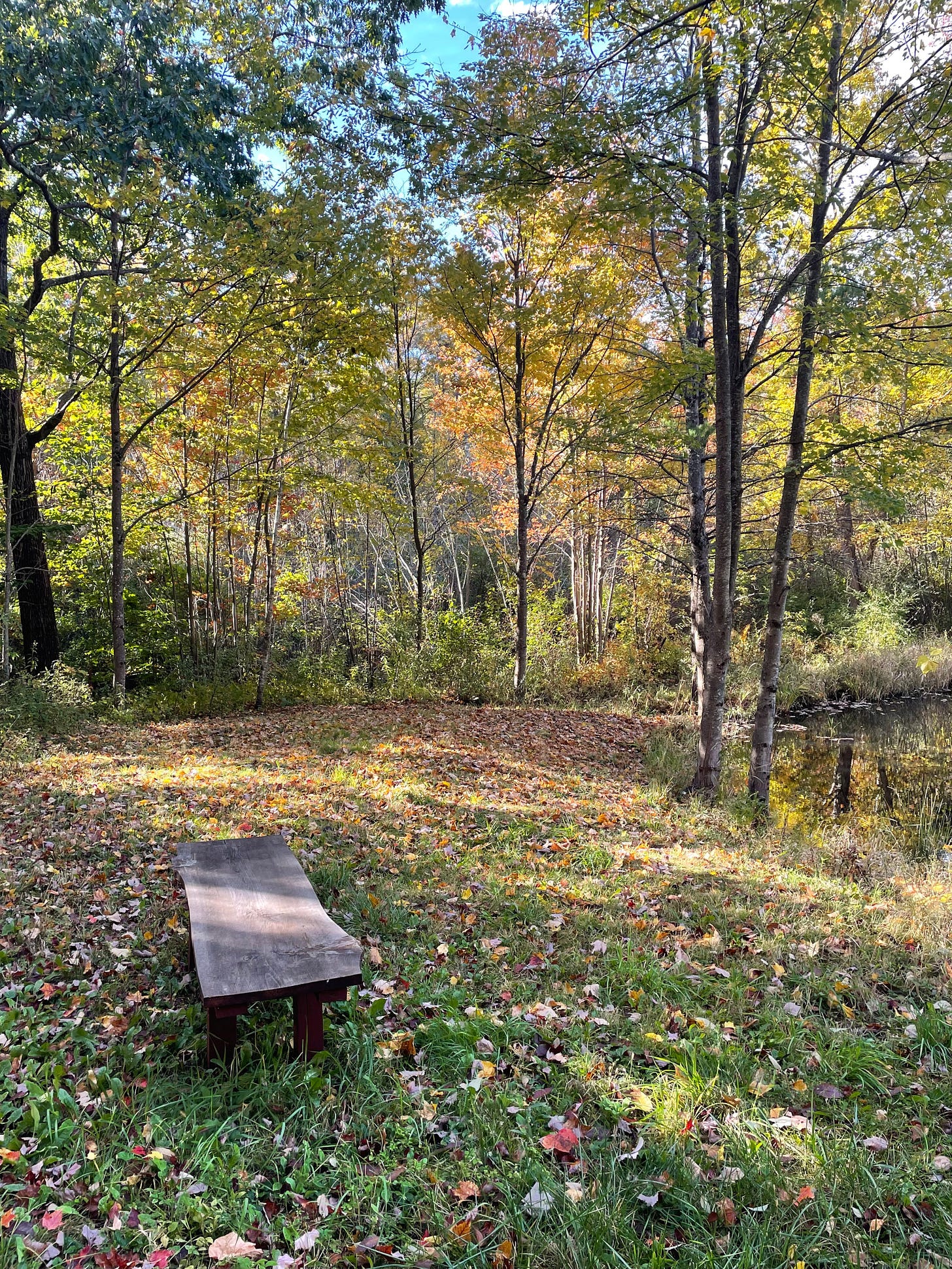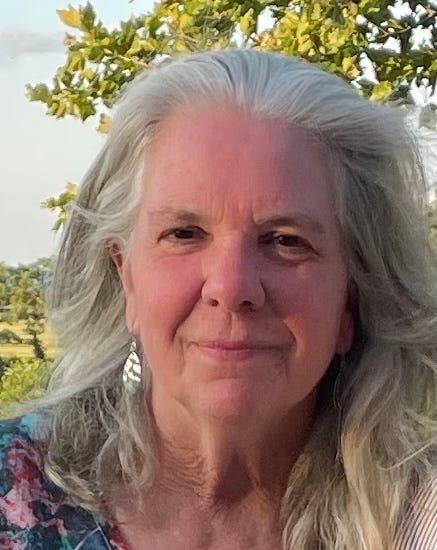Today, we are honored to interview Polly Ingraham. Read her brilliant piece, “Falling in Love, Over the Chasm” here.
Jen Knox (JK): Hi, Polly! We’re so honored you’re spending a little time with us. Can you tell the Unleash community a little about your journey as a writer?
Polly Ingraham (PI): When I was around 10 years old, I used to head into the woods near our house, bringing a notebook and a pen with me. I’d find some cozy place, often in a tree, and then start writing—about the birds that were fluttering around me, and about my thoughts. This was how I began paying attention and reflecting, during moments of solitude. A bit later, I started studying classical piano and discovered the joy of bringing this kind of beauty to life, but I rarely improvised. Throughout high school, college, and graduate school, I was frequently moved by what I was reading and became proficient at writing academic essays. Still, I didn’t feel much like a creator myself. It was only after getting married and experiencing the hurly-burly of raising three children that I turned back to my original kind of writing: bringing forth the range of responses, and sometimes contradictory impulses, I had about what was going on around me, especially as the stubbornly non-religious wife of a clergyman.

JK: What is the best piece of advice you've received as a creative person?
PI: Probably to focus on bringing out my natural voice, while also being always open to learning from others. This is a balancing act. I’m surprised sometimes when people reading my work say, “That sounds just like you” because I don’t have any distance from myself and right away wonder, “Is that good, or not?” But I’ve learned that being true to ourselves and our quirky ways of looking at the world is one of the most important things we can do – as writers and as people, too. At the same time, though, we need to be attentive to ways in which we can learn from others how to make our work better – not more like theirs so much as more like our very own.
JK: Who inspires you, Polly? Please share with us one (or a few) of your favorite lines, either from your work or someone else's work, and explain what strikes you about the passage.
PI: I’ll choose the ending of E.B. White’s “Once More to the Lake”:
Languidly, and with no thought of going in, I watched him, his hard little body, skinny and bare, saw him wince slightly as he pulled up around his vitals the small, soggy, icy garment. As he buckled the swollen belt suddenly my groin felt the chill of death.
Here is a middle-aged man watching a boy, his son, do something that he clearly once did himself, at the same age. Deftly, White can compress the two individuals, reminding us of moments when we too had to grasp the hard truth of our own mortality. The chill of the swim trunks is parallel to the chill of the realization. The sensory detail of the passage makes it work so beautifully.

JK: How did you find your first publication?
PI: Since I was the Sports Editor of my high school newspaper (a whole class was devoted to it), my first publication was probably an article about a varsity team. Then there was the impassioned testimony I gave, which was published somehow, to a state agency in Connecticut about why trapping of wild animals should be banned. But my main breakthrough came with a column that landed in the Boston Globe magazine’s “Coupling” space back in 2006. It was about the constant collisions my clergy husband and I kept having over sports events/church services. I knew I had a distinct situation I could describe in a lively way, with expected gender roles reversed, and I sensed that outsiders would find it amusing. This publication gave me the courage to try to go for a whole book.
JK: What are you working on next?
PI: Good question! I wish I could say that I have a crackerjack idea for a short story collection or even a novel, but when I get good and done with this memoir I’ve been trying to get out, I think I’ll be staying with non-fiction. Having been active for years with a non-profit organization that pairs adults and young people, and hearing about “mentoring” as a kind of a buzzword these days, I’m interested in exploring what we know about most effective strategies in this area. Without being someone’s parent, how can you best guide and support a young person who needs to find his/her route to independence and fulfillment? Is there a “just right” measure of involvement? I’d like to tell some individual stories of people who can reflect on their experiences and identify both the frustrations and the factors that were most important in changing life trajectories for the better.
Polly Ingraham has worked primarily in high schools, both as an English teacher and a School-to-Career counselor. She and her husband live in Concord, NH; their three adult children are elsewhere. In 2018, she completed Grub Street’s Memoir Incubator program and continued working to finish her book manuscript. She has attended workshops at the Madeline Island School of the Arts, the New York State Writers Institute, the Wesleyan University Writers Conference, and the Iowa Writers Festival. Her work has been published in the Boston Globe Sunday Magazine, Tikkun, Dartmouth Alumni Magazine, and on National Public Radio. She is a contributor to FAST, FIERCE WOMEN, an anthology of flash non-fiction published in 2022. Her blog is:
https://www.pastorswifeblog.com/



